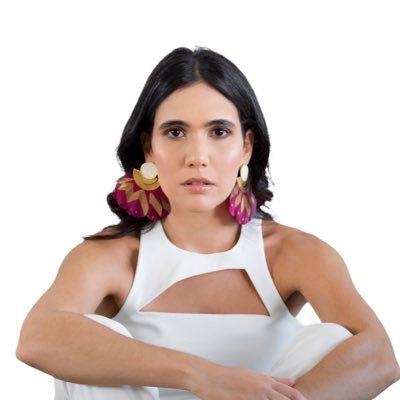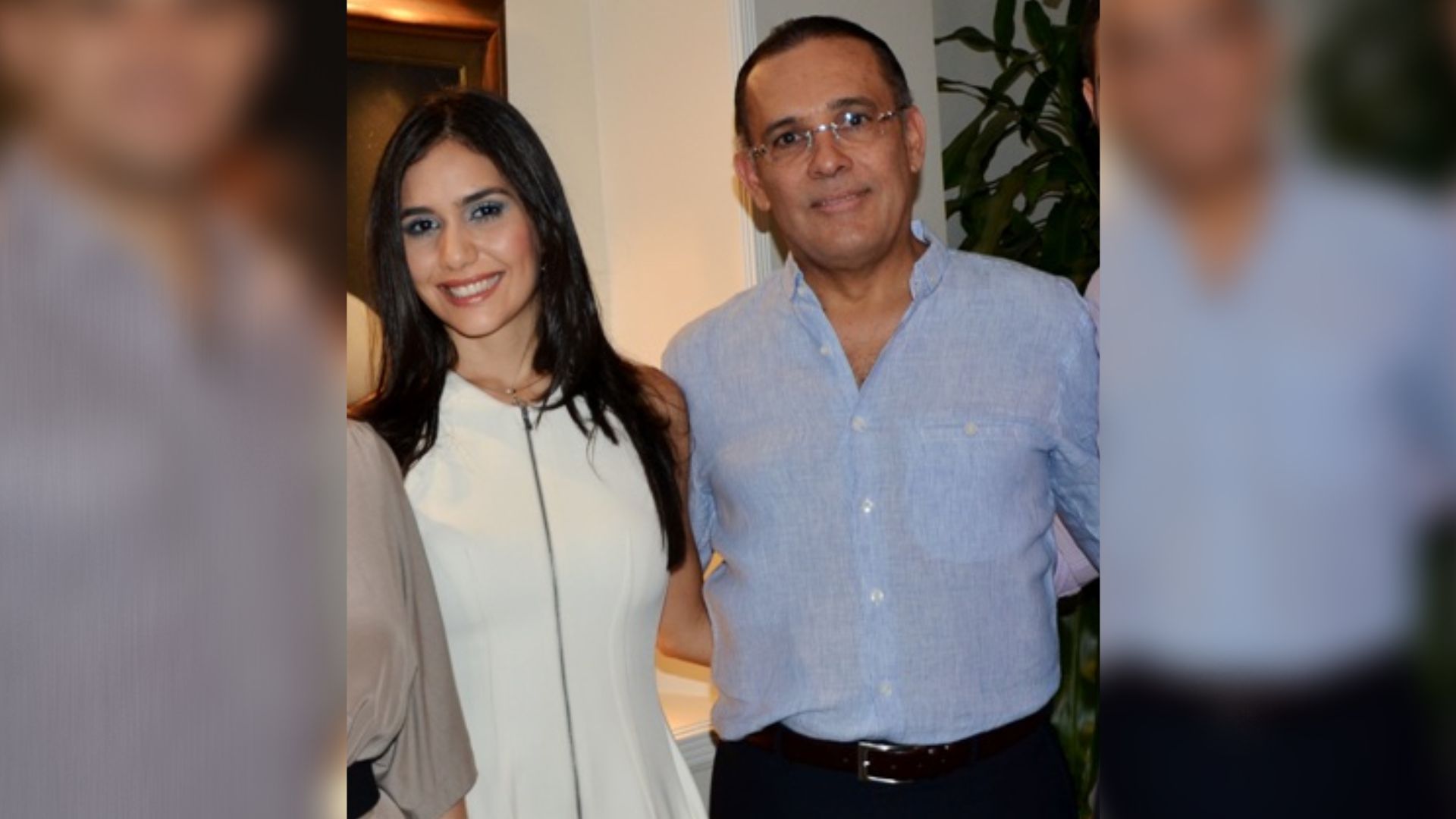'My mission is to make the invisible visible': Daniela Cepeda Tarud

Daniela is a lawyer, strategist, and former queen of the Barranquilla Carnival, but above all, she is a woman convinced that social, community, and cultural aspects can be fused into a single cause. Since she was young, she has worked to make "the invisible visible," and this is not a phrase devoid of meaning: it's an obsession that accompanies her in every project she has undertaken.
She has been on the side of the Carnival's creators, she has walked with migrant communities, she has worked with local governments, with women leaders, with young people, with artists, with dreamers. She received recognition as a Cafam Atlántico Woman of 2025 and today she joins us to tell us about this journey that blends academia, territory, leadership, and humanity.
Are you serious about being a student representative seven times during your high school and university days?
Ha ha. Yes, that's right: seven times. I was the nerd in the class. The one who sat in the front row, knew all the teachers' names, and shamelessly raised her hand in class. But beyond that, what drove me was a deep conviction that young people do have the power to transform, even in spaces that sometimes seem minor, like the university.
And what led you to get into those spaces?
From a very young age, I was influenced by the social reality I saw around me. I grew up in a context where injustice was part of the landscape, where violence and inequality felt close at hand. And from then on, I decided to dedicate myself to understanding how I could help change that. At university, we created a student group called "Join Us Yes." We promoted political culture among young people, active participation, but above all, we sought to make visible those who had always been invisible. That was the first step of many.

Daniela Cepeda Tarud. Photo: @DCepedaTarud
“Making the invisible visible”… That phrase is always with you.
Yes. Because I feel like everything is there. The invisible are those stories that no one tells, those talents that no one recognizes, those struggles that no one applauds. I've had the privilege of walking alongside many such people. And my role, as a woman, as a professional, and as a Barranquilla native, has been precisely that: to help the world see them.
And speaking of Barranquilla, let's talk about Carnival. You were a queen, yes, but you were also deeply committed to the makers, to the tradition, to documenting this cultural richness. You even wrote a book. What did that whole process leave you with?
It was a wonderful chapter in my life. Like many girls from Barranquilla, I dreamed of being Carnival queen. But from the very beginning, I knew I wanted to use that platform for something bigger. I set out to make people understand that Carnival isn't just a party, that behind every costume lies a living story, a tradition that has been passed down from generation to generation. I dressed as a marimonda dancer, a cumbia dancer, a golero dancer. And yes, at first, people wondered, "Why doesn't this queen wear traditional costumes?" But over time, they understood that what I was looking for was to pay tribute to those who have sustained this tradition with effort and passion. We began to talk about how Carnival could be an engine of development, how it could help many people earn a decent living from their talents. And that's also how the book Somos Carnaval (We Are Carnival) was born.
Tell me more about that book…
It was the result of a year and a half long process with the Carnival creators. We held workshops on collective memory, writing, photography, and painting. We gave them the tools to tell their own story. We didn't want anyone to speak for them, but rather their own voices to be recorded. In the end, many told us: "We are no longer creators, we are artists." And they were absolutely right. Somos Carnaval is like zooming into their lives, their emotions, their memories. It was a profoundly transformative experience for all of us who participated.
Did you feel like more was demanded of you because you were a woman and also a queen?... as if you had to prove your leadership more than others...
I think whenever you do something different, there's always a stir. When everyone agrees, something strange happens. In my case, there were those who didn't understand at first. But over time, people began to see the meaning of what I was doing. And of course, when you're a woman, young, and visible, you have to prove yourself twice as much. But I'll also tell you: when you're sure of what you want and surround yourself with the right people, anything is possible.

Senator Efraín Cepeda with his daughter Daniela Cepeda. Photo: Private archive
At some point, you went to London to study public policy at the London School of Economics. What did you learn there that you've been able to apply in Colombia?
Going to study there was an important step. I wanted to continue my education, but I also wanted to understand how other countries were facing their social challenges. In London, I learned two things that shaped the way I work. First, the value of critical thinking. We can't continue solving the same challenges with the same solutions. We have to think differently, take risks, and question. The second lesson was understanding that a person's well-being isn't measured solely by objective factors: income, health, education. There's also subjective factors: are they happy? Do they feel heard? Are they satisfied with their lives? Today, in all the projects I lead, we work from that perspective. We don't just want to improve statistics; we want to transform lives from the ground up.
And that's where another central theme of your work comes in: migration. You were in the Barranquilla mayor's office, leading the creation of the Local Integration Center for Migrants and later the Pa'lante strategy, which was even internationally recognized. What motivated you to work on this issue of migration?
It all starts with my grandmother. She was a Palestinian migrant. She was born in Paris and came to Barranquilla with her family to start over. Seeing her story, her struggle, her resilience, left a lasting impression on me. And when this new wave of migration arrived, especially from Venezuela, I knew I couldn't stay still. At the time, I was advising Mayor Jaime Pumarejo and proposed creating a center where migrants could find all the services they needed to begin their new lives in one place. This is how the Local Migrant Integration Center was born, and later, "Pa'lante," a strategy that became a national and international benchmark.
Is there any story that has particularly left a mark on you?
Many. But I'll never forget the children of Voces de la Paz, a musical group that emerged in one of our intervention neighborhoods. Valentina, Kevin, Brian... talented children who found in music a way to heal and dream. Or Milagros, a woman who arrived from Venezuela with her husband, built their house with their own hands, and today she leads emotional well-being initiatives in her community. Stories like that of Mariana, who risked her life to bring her children and leads community initiatives in La Loma. These are people who arrived against all odds and today are driving forces of change.
And after all that work, you founded Muttu. What is it and what does it aim for?
Muttu is my dream come true. It's a social innovation platform that transforms complex challenges into sustainable solutions. We design, implement, and evaluate projects that seek to unlock the potential of vulnerable people and communities. We work with our own methodology called Integration+, which addresses integration from multiple dimensions: social (health, education), productive (employment, entrepreneurship), urban (housing, safe environments), cultural (cohesion), and community. And we do so from the family's core, because we are convinced that true progress is not individual, but collective.
And how do they measure the impact of what they do?
We have an Integration Index that allows us to see not only what is improved objectively, but also what is changing emotionally. We strive for our interventions to be sustainable, not palliative. In the next five years, we want to reach 500,000 people in Colombia, and we will do so by coordinating efforts between local governments, international cooperation agencies, businesses, NGOs, communities, and academia. Because when you work as a network, the impact is more profound.
I have a personal question for you. You're the daughter of a well-known senator, but you've clearly forged your own path. Have you felt that the recognition you're receiving today is for you, for your work, and not for your last name?
Absolutely, José. I've worked my butt off. This path hasn't been easy. I've worked from the bottom up, from the ground up, from the streets. I've built this with great passion and also great rigor. My father, of course, has been an inspiration. I admire him deeply. But what I do isn't an inheritance or a favor: it's a vocation that I've cultivated step by step, with the best team and with my heart in my hand.
And to close, what became visible to you, in the most intimate part, that was previously invisible, using your phrase?
That when one works from collective strength, from unity, from love for what one does, nothing is impossible. What seemed distant becomes close. What seemed impossible becomes achievable. And that, José, is the most beautiful thing about this entire journey.
eltiempo





